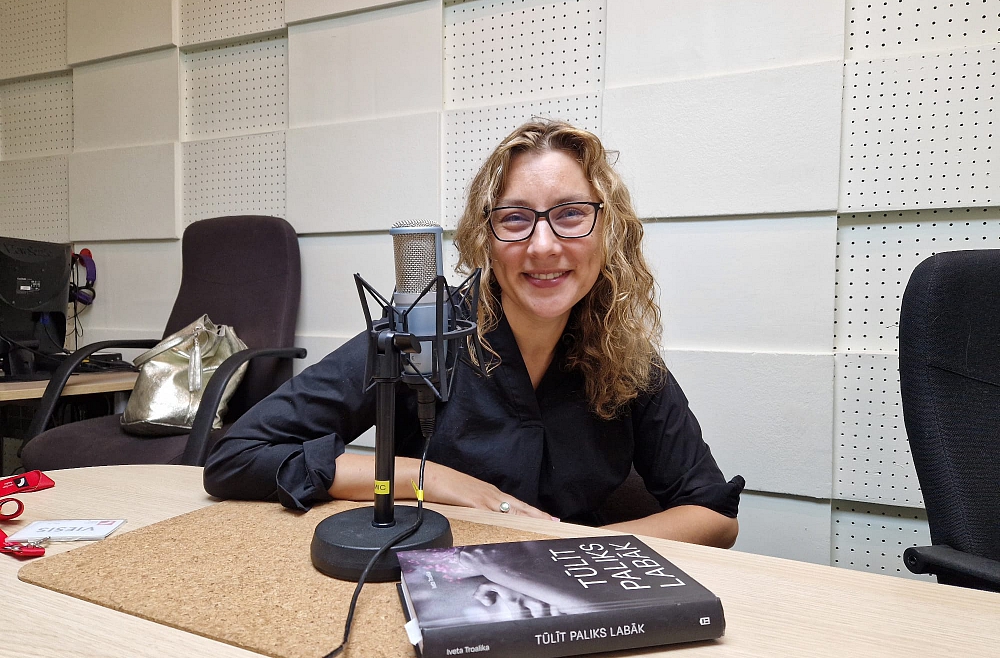Iveta Troalika’s debut novel was submitted for the Dzintara Soduma award by her literature teacher Anna Indāne. “She was the one who organized it all, and the application letter also had the signatures of many other teachers. It was very touching that the teachers thought of it, did it,” emphasized Troalika. Indāne had also collected the reviews of Ikšķile high school students who had read the book. They are, of course, different: from “both characters are idiots and don’t understand anything” to “cool book, I understand everything the characters are going through”.
Another flood of reviews, heard in public places, was delivered to the writer by friends. “All my friends and acquaintances know that I like to be told what I heard,” she revealed, “not exactly the right sentences that I thought up, but something I overheard, because then I think it’s more authentic.”
Asked to reveal what kind of literature she was close to as a teenager, Troalika said: “I’ve always read very, very much. Maybe there was just nothing else to do.
We had a big bookshelf at home. I read everything one after the other, in a dotted line, very uncritically. There was Remarque and Hemingway together, and Danielle Steele, and poetry – Chuck, and the tales of Anna Sachs.
I had periods like that. If we were talking about [laiku] closer to my teenage years, I had one very serious Remarque period where I read everything and loved it terribly. At one point, I probably got tired of him, and I thought he was already starting to reproduce himself. I left him and started reading… Someone jokingly told me, “If you like Remarque, you might like Hemingway. Only he doesn’t drink calvados, he drinks rum.” Then I read Hemingway for a while. After that, I got tired of those men. Daniela Steele’s books appeared. I read about two or three, understood what the scheme was and decided – I will not read this again, everything is clear to me, never in my life.”
About the same age as Laura, the heroine of her book, the author of “It Will Get Better Now” is said to have become fascinated with the literature published by “Athena” publishing house. “And then there were all kinds of Latvian authors that I liked,” she added. In the ninth grade, Troalika read lines of poetry by Marta Pujat, Ieva Melgalve and Jānis Indān: “This trio, although they are two or three years older than me, seemed like demigods, happy people who could write poetry. I had a poetry period in which I wrote poems and I didn’t show it to anyone, and when I did, I was terribly ashamed.”
Finally, the writer explained how she managed to make her debut in prose: “I didn’t know until the end whether this work would be finished or not, whether I was writing it to show it to someone and publish it. Therefore, it was not clear to me whether it is for teenagers. Most likely
I thought it would be for people of my generation who were teenagers at the time. I even thought today’s teenagers might not understand that time, but apparently emotions are universal enough and they seem to understand.
Maybe they don’t know what a “kožak” is, but they understand the emotions and the events and experiences are similar. To me, the period of adolescence seems wonderful in the sense of literature precisely because there the colors can be used very dramatically thick. All emotions are immediately very strong there.”
–
Highlight the text and press Ctrl+Enterto send the text fragment to be corrected to the editor!
Highlight the text and press on Report a bug buttons to send the text fragment to be corrected to the editor!
–
–


